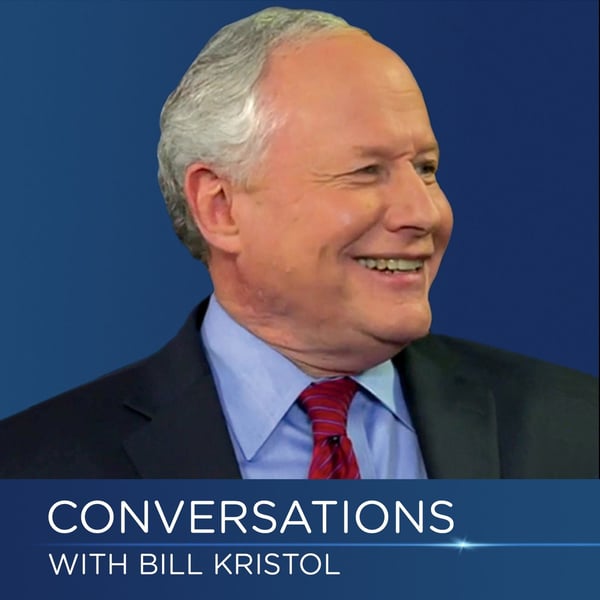Jonathan Rauch on Polarization, Information Warfare, and Cancel Culture
Conversations with Bill Kristol
Conversations with Bill Kristol
4.7 • 1.7K Ratings
🗓️ 18 June 2021
⏱️ 81 minutes
🧾️ Download transcript
Summary
Transcript
Click on a timestamp to play from that location
| 0:00.0 | Hi, I'm Bill Crystal. Welcome to Conversations, and I'm very pleased to be joined today by Jonathan |
| 0:20.3 | Roush, a long time friend and someone I've admired a lot and looking very much, looking forward |
| 0:26.4 | to hearing from author of an excellent new book, the Constitution. I should hold this up here that's |
| 0:31.2 | what you're supposed to do. The Constitution of Knowledge, a defense of truth, published by the |
| 0:36.1 | Brookings Institution where he's seen your fellow. In a way, this book, John, I think is a |
| 0:41.4 | follow-up to a book you wrote. I'm sorry to believe, almost three decades ago, kindly inquisitors, |
| 0:47.4 | attacks on free thought, which I remember well, reading at the time. So, John, thanks for joining |
| 0:53.6 | me today. It's a special pleasure. I love the podcast and your father helped me with the kindly |
| 1:00.0 | inquisitors at AEI all those years ago. So, this in that way closes a circle. Oh, that's great. I |
| 1:05.4 | didn't even, I didn't know that. So, that's good. That's good to hear. You also wrote an excellent |
| 1:09.1 | piece last year. I thought we'd just be getting with that for a couple of minutes before getting into |
| 1:13.0 | the things you particularly focus out of the book. In National Affairs, I think is about a year |
| 1:19.1 | or two years ago, I guess, on polarization and partisanship. But it does seem to me that that was more |
| 1:25.2 | about the political moment and sort of, but it seems to be the later groundwork for what you talk |
| 1:31.5 | about in the book. So, say a few words about how we got to be so polarized and partisan. |
| 1:41.2 | Well, they relate to each other. The way we're used to thinking about polarization is as people |
| 1:48.9 | divided ideologically over issues. Taxes up, taxes down, abortion, yes, abortion. No. What we've |
| 1:56.3 | seen emerge in the last 10, 15 years is something different. It's what people call affective polarization |
| 2:03.2 | and negative partisanship. And that's where it's not so much about issues. It's about not liking the |
| 2:08.2 | other side. It's actually hating and fearing them. And the interesting thing about that is it doesn't |
| 2:13.7 | necessarily correlate with people liking their own party. It's that they like the other party even |
| 2:20.9 | less. It's called the lesser of two evils identity defense, which is when I don't really like my |
... |
Please login to see the full transcript.
Disclaimer: The podcast and artwork embedded on this page are from Conversations with Bill Kristol, and are the property of its owner and not affiliated with or endorsed by Tapesearch.
Generated transcripts are the property of Conversations with Bill Kristol and are distributed freely under the Fair Use doctrine. Transcripts generated by Tapesearch are not guaranteed to be accurate.
Copyright © Tapesearch 2025.

